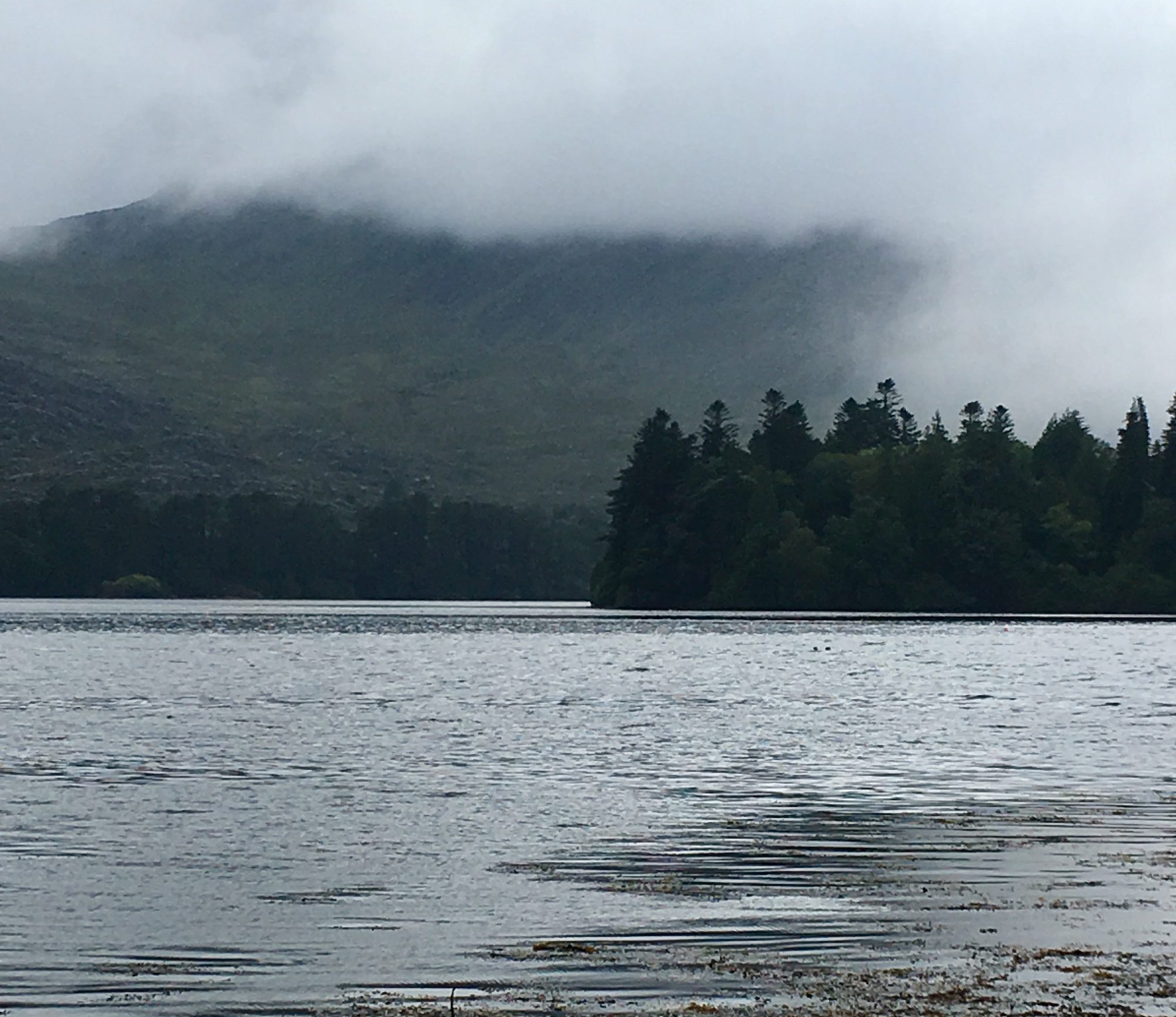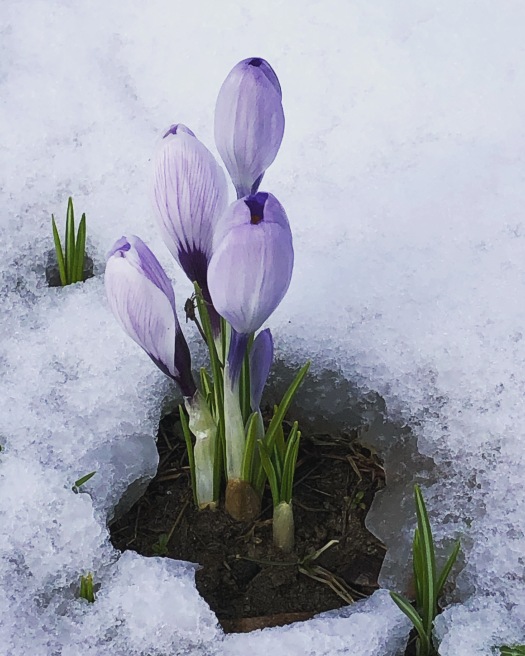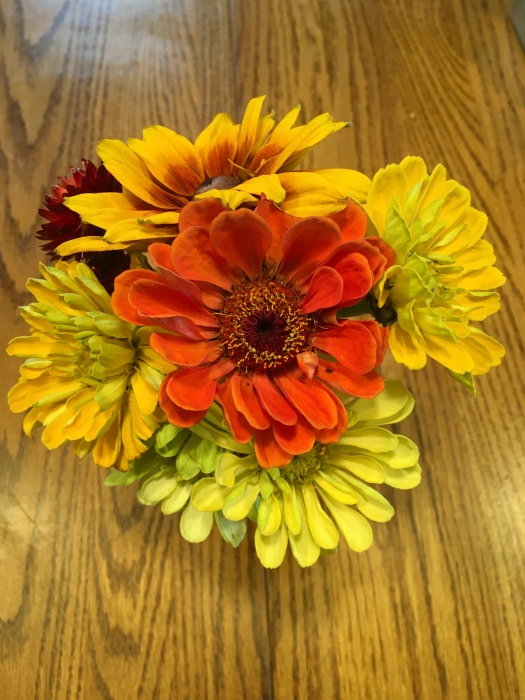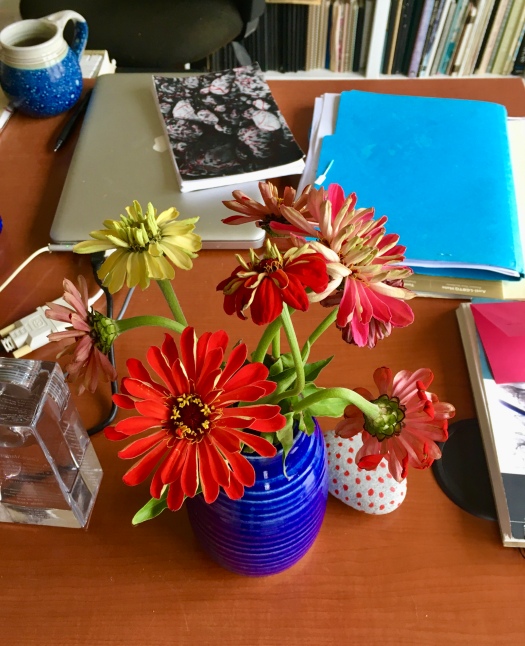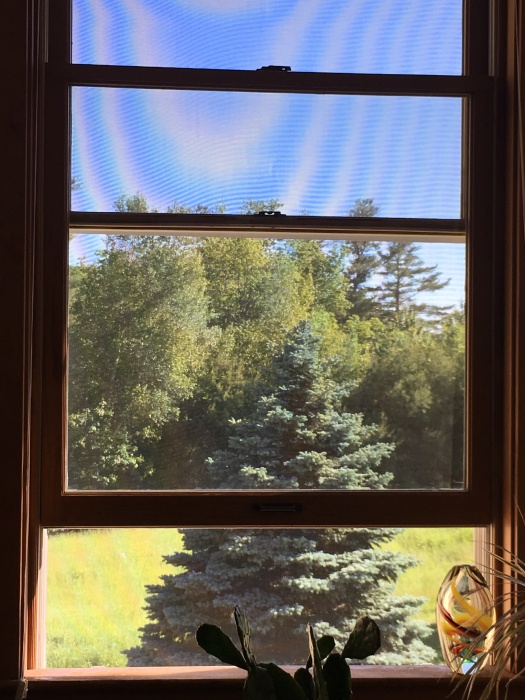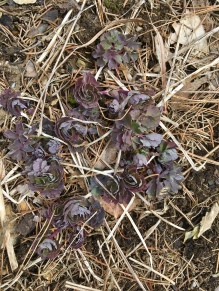
Home, on my porch, as gray storm clouds pitch across the sky and peonies poke through the balusters. For a change I’m not going to miss peony season in my yard. The last couple of years I’ve been away during the peak of peony blossoming. To extend the season, I wrapped buds in newspaper and stored them in the refrigerator. When I took them out weeks later, once I was home for awhile, they bloomed.
This year I’ll get to pick the heavy heads as they open their extravagant faces, petals tucked in petals tucked in petals in silky folds that seem like forever. The house smells like heaven. I have such peony bounty yesterday I brought a bunch to a family gathering in Massachusetts.
This morning I sat on the porch of the beach house my siblings are renting, watching sun begin to brighten the ocean out near the horizon, the never ending in and out of the waves, white water on white sand. Beautiful.
But I’m happy to be home. Instead of the hot, dry, empty, full ocean beach view, now I face a green world of rampant vegetation and peonies so thick they become part of the porch. I live in a beautiful place and it’s a treat to be here in the height of the light season.
I’ve been away a lot. Last week I was in New York playing with Emilio. We had a blast — a ferry ride to Fire Island, wave tag on the beach, ice cream every day, a DIY water park in the backyard with Ava, timing how long it took to round the bases of a ball field and run the smallest circle on the running track at the park. Short distance, Emilio is faster than me. Youth is a powerful thing.
Now I’m sitting still on my porch as the rain approaches and wind begins whipping the tall grasses in the field across the street. Most of the coming week ahead I’ll be home. Next week too. And the next and next and next until I’ve been home the seven weeks I don’t have to be anywhere else for longer than an overnight. I’m delighted.
I’ll bring in a fresh bouquet of peonies every day. Then it will be zinnias and cosmos, marigolds and nasturtiums, salvia, rudbeckia and poppies. Plus lettuce, kale, peas, beets, squash, cilantro, basil, peppers, and dill.
Yes, I’ll say it again. I’m happy to be home.
